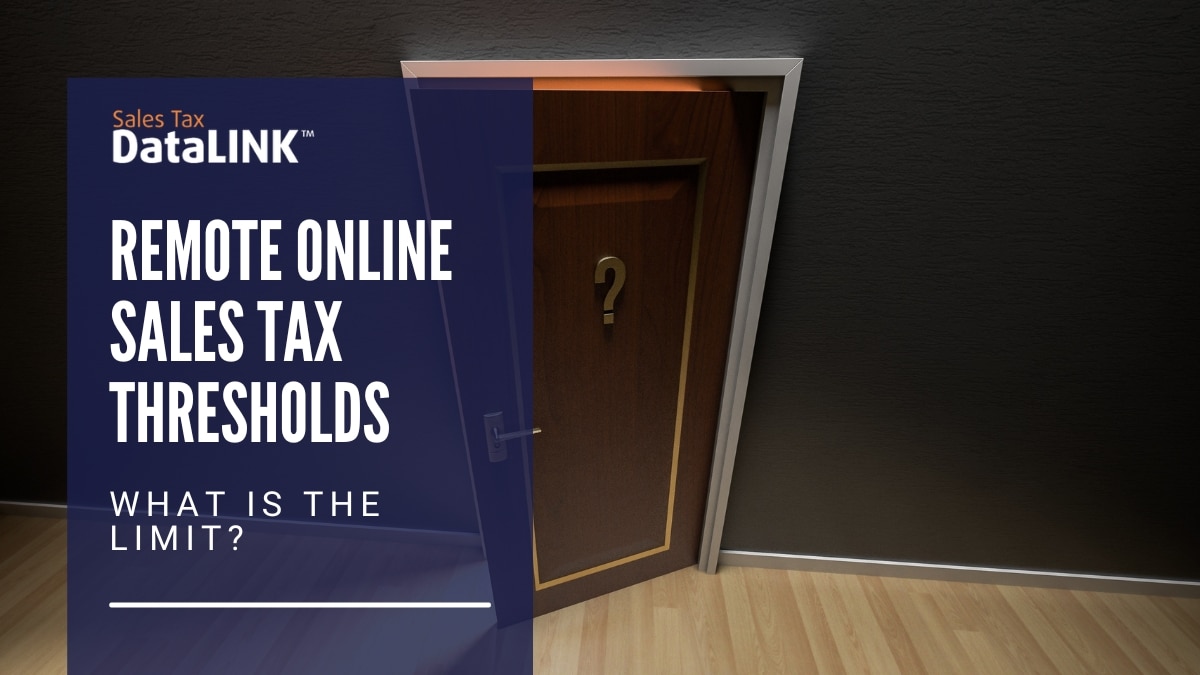Understanding the Impact of Remote Online Sales Tax Thresholds
When the Supreme Court ruled that states have a right to make out-of-state sellers collect sales tax, one of the things that made them comfortable with the South Dakota law was its threshold. South Dakota said that remote sellers would have to collect sales tax from customers in South Dakota — but only if they sold $100,000 or more, or had 200 or more transactions in South Dakota in one year.
Before the Supreme Court’s Wayfair decision, a company would have to have a physical nexus, or a physical presence, in a state before a state could require that company to collect sales tax. After the Wayfair decision, a company’s economic benefit from a state was enough. A state could claim that remote sellers were benefitting from their relationship with customers in the state, so they should collect and pay sales tax on those relationships.
Opponents of laws calling on e-commerce companies to collect sales tax pointed out that Mom and Pop e-commerce stores with a little bit of revenue from each state might be driven out of business by the cost and complexity of filing sales tax in every state. The threshold convinced the Supreme Court that the new sales tax laws would not go against the interstate commerce clause of the Constitution. They rather airily said that software would make it easier for companies that sold more than $100,000 in multiple states to meet the requirements.
They’re right about how software can help. Contact us to find out how we can make sales tax compliance easy for you!
But threshold rules vary a lot from state to state.
Many states have set thresholds at $100,000, sticking to South Dakota’s precedent. Not all states took that tack, however. Texas, for example, has a threshold of $500,000. Amazon accounts for about 40% of all e-commerce sales in the United States, and they already complied with sales tax regulations in most states. Big box companies with physical stores in Texas account for about another 20%. Texas probably won’t capture many more remote sellers with their new law just because there aren’t that many remote sellers left in the category.
Kansas, on the other hand, has no threshold. A Missouri maker of farm machinery who sells $6.00 in replacement screws to a customer in Kansas must get into compliance and start collecting by October 1st.
Arizona has taken an unusual approach by having a shrinking threshold. For 2019, the threshold is $200,000, another common threshold. In 2020, the threshold will go down to $150,000 in revenue, and the threshold will go down to $100,000 in 2021. This should give smaller sellers a little time to figure out how to comply with the Arizona rules.
Bear in mind that a number of states define the threshold based on all revenue, not just retail sales. So that machine maker who sells $6.00 to an end-use customer in Kansas might also sell $6.00 to an end-use customer in another state where they have $100,000 in wholesale sales. That could make them meet the threshold in that state.
How should you respond?
About a dozen states are requiring companies above the threshold to start collecting sales tax as of October 1, 2019. Check your sales records for the past 12 months to determine your revenue from each state where you have sales. Include wholesale and retail sales, but calculate them separately. You can use these figures to determine for each state whether you meet the threshold or not.
For many companies, it will make more sense to get ready for sales tax compliance in all the states. It may be less costly to do this than to go through the process of determining which states will require compliance from you this year.
Call our experts at (479) 715-4275 for sales tax advisement. You can use our solutions to maximize accuracy and avoid exposure, or let our experts take care of sales tax compliance for you from start to finish.




